I am trying to call saveOrUpdate() in hibernate to save data. Since columns have unique index, so its throws ConstraintViolationException when I look through via Eclipse debugger.
Since root cause could be different for different exception while inserting data to table.
I wanted to know, how can I loop / traverse through getCause() to check what is the root cause of exception and its message.
Update:
Thanks everyone for your kind response, thing is I want output like in below image:

I need to access detailMessage field.
(I am really sorry If could not make my question more clear.)
Thanks.